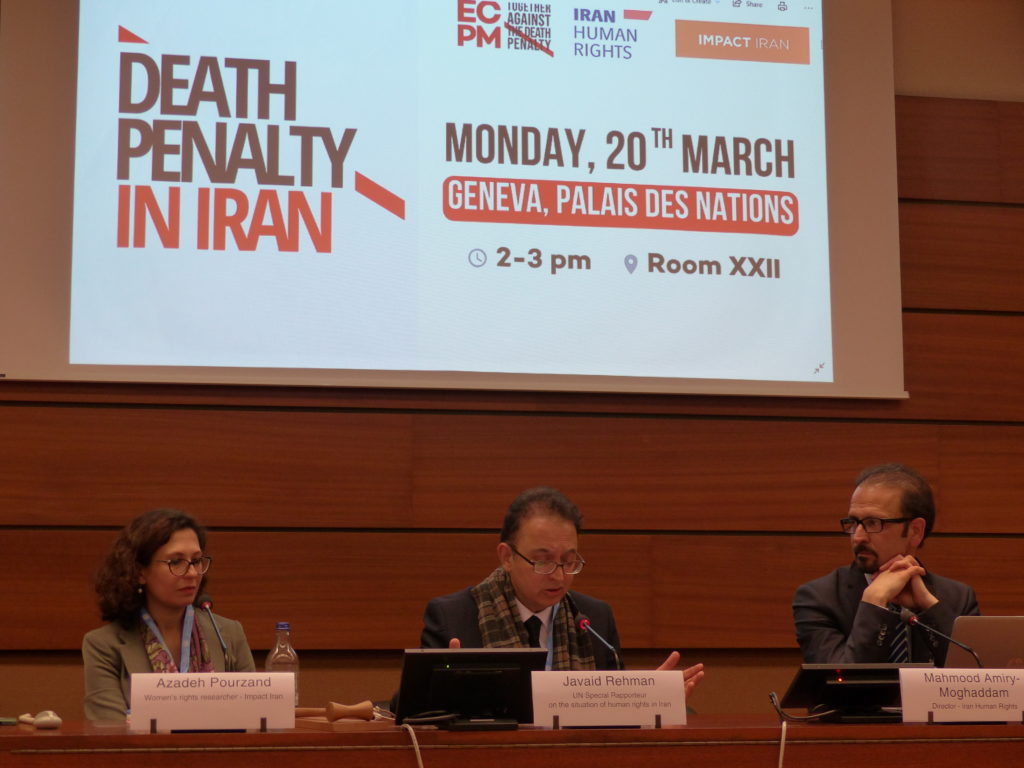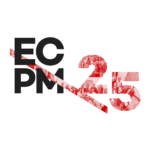
The first side event organised with Iran Human Rights and Impact Iran on 20 March was on the death penalty. Mr. Raphael Chenuil-Hazan, Director of ECPM, introduced the event recalling that Iran uses the death penalty as a tool of political repression and that the use of the death penalty is linked to many other human rights violations. Mr. Javaid Rehman, UN Special Rapporteur on human rights violations in the Islamic Republic of Iran, recalled that in his annual report presented the same morning at the Human Rights Council, he had strongly denounced the use of the death penalty, particularly for crimes that do not fall into the category of the most serious crimes under international law. Mr Mahmood Amiry Moghaddam warned of the increase in the number of executions in Iran, especially for drug-related offences in 2022. Ms Azadeh Pourzand came to warn about the increase in violence against women and the use of capital punishment, often the revolting consequence of violence committed against them. “The Islamic Republic of Iran is structurally set against the emancipation of women and their right to live their lives as they wish,” she said.
On 21 March, another side event co-organised by Impact Iran, Article 19, Front line defenders, Amnesty international, Iran human rights documentation center and ECPM focused on the state of play 6 months after the beginning of the protests in Iran.
A number of delegates from diplomatic representations of UN member states and NGOs attended the two side events.
Iran remains the world’s top sentencing and executing country in relation to its population. The regime uses the death penalty for political purposes and to repress its own people, sentencing them to death for offences that are not listed as the most serious crimes under international law. Detainees are systematically deprived of their right to defence and to consult a lawyer, subjected to torture and forced confessions before being sentenced to death and executed. Ethnic and religious minorities are over-represented on death row, as are abused women and children.
